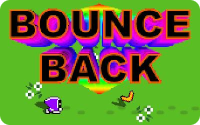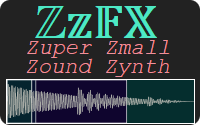Hitsuzendō (way of Zen through brush) is believed by Zen Buddhists to be a method of achieving nirvana. This work is my own way of following that practice.
This piece combines many techniques to create the shapes, simulate the brushwork, and generate the stamps. There are several styles possible including ancient, modern, inverse, and graffiti. The stamps are also generated with many varieties possible.


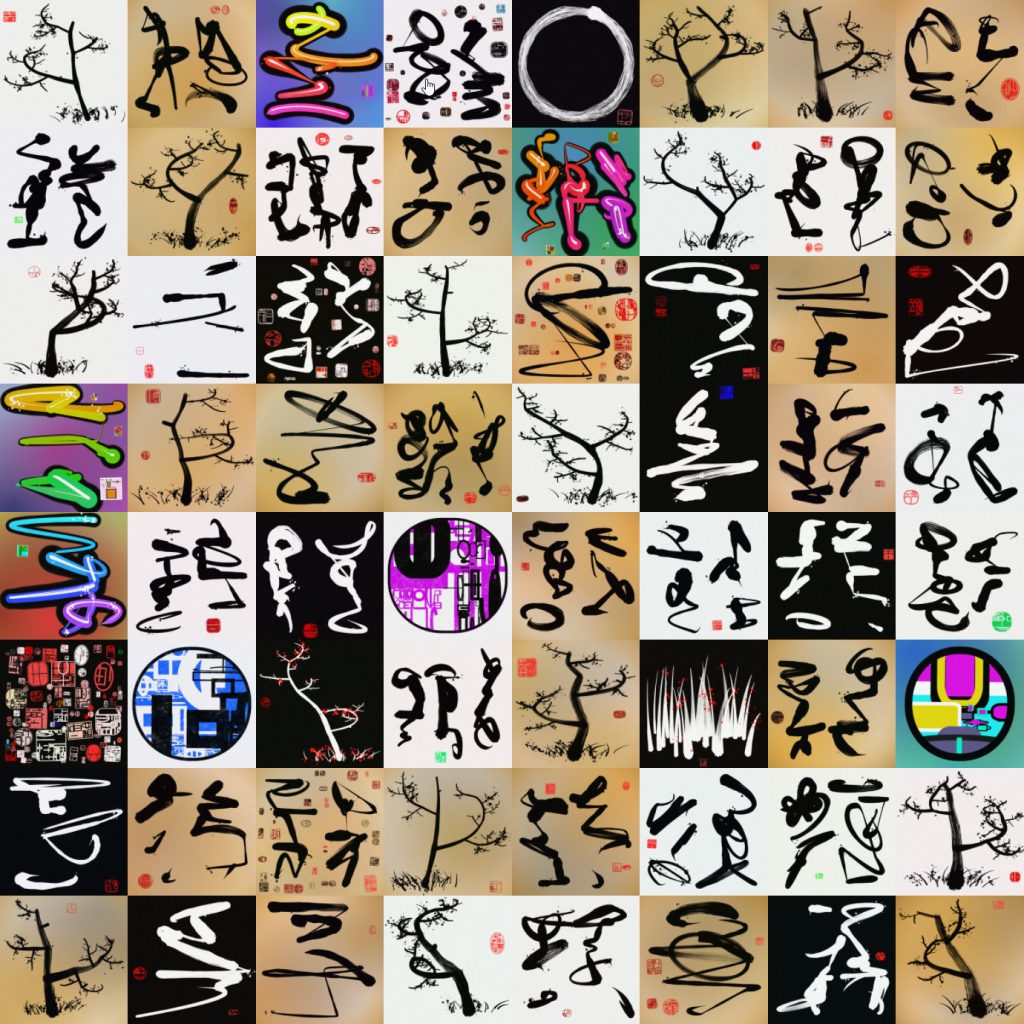
Keep reading for some more info about this piece!
I have always loved old calligraphy and modern reinterpretations of it. I don’t often talk about being a Zen Buddhist but because of that this piece carries special meaning for me.
Hitsuzendo refers specifically to a school of Japanese Zen calligraphy to which the rating system of modern calligraphy (well-proportioned and pleasing to the eye) is foreign. Instead, the calligraphy of Hitsuzendo must breathe with the vitality of eternal experience.
Wikipedia/Hitsuzendō
Like many of my recent works, this piece started life as a dweet that I posted last year. I made several in this generative calligraphy and asemic writing series.
with(x)lineWidth=t%5*9,S(a=t|stroke())>.9|t%9<1?beginPath(fillStyle='#a00'):lineTo(99+(t/9|0)*213-67*C(z=t*9*S(a))*S(a*a),t%9*109+69*C(z)),font='8em"',fillText('\u32DB',1520+S(t)*9,1e3+C(t)*9)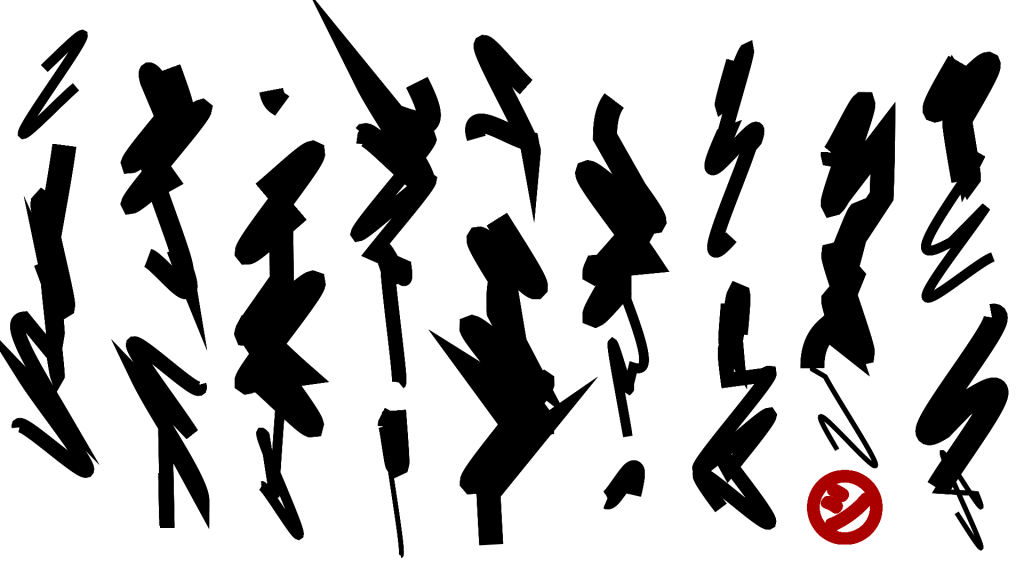
I collected many documents as research for this piece. I was inspired by Chinese calligraphy from the Tang Dynasty in particular Zhang Xu.
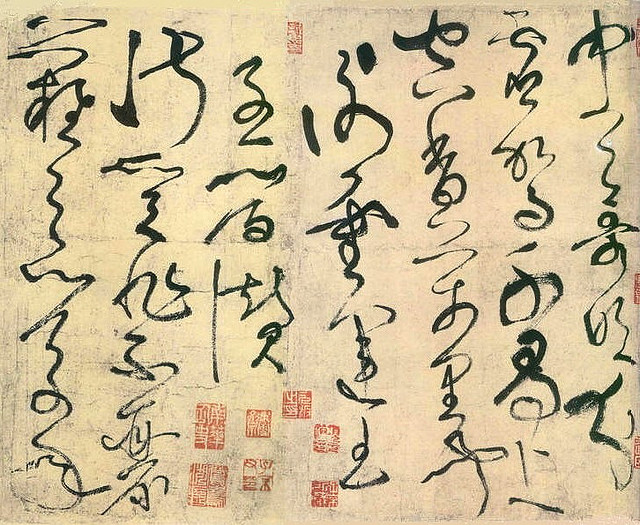
For this new piece I improved the formula, added a brush/ink simulation, and created code to make cool looking stamps. Here’s one example with the gratuitous stamps option.

The stamps are fully generated with a special sub division formula. Here is a stamp sheet which shows many possible examples…

I also experimented with some being painted with a graffiti style.

There is a small chance of several rare shapes appearing like this ensō symbol.

Still here? I dug up my first tweet about this project for you. Thanks for reading, take care of yourself, and have a great week.





